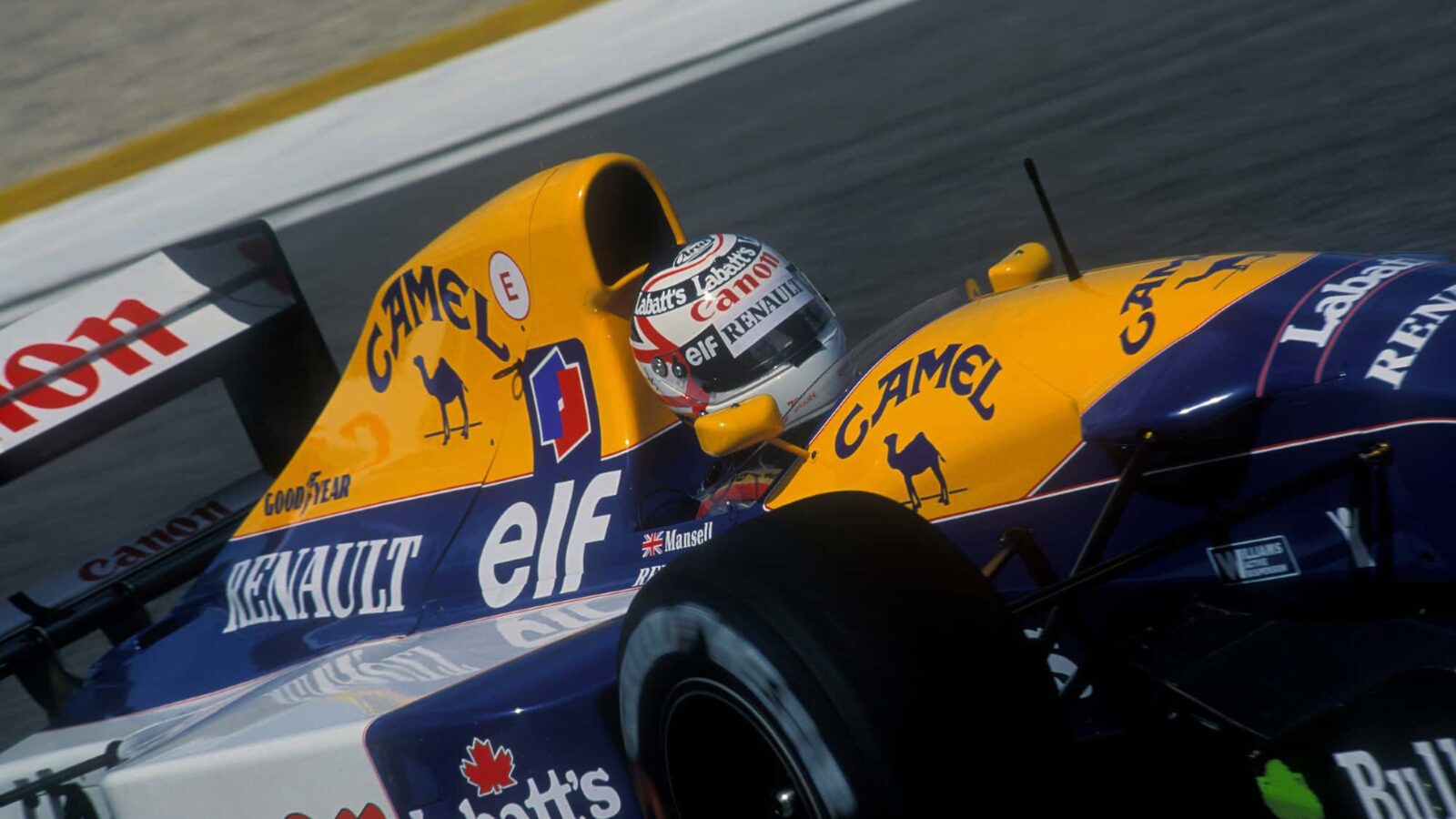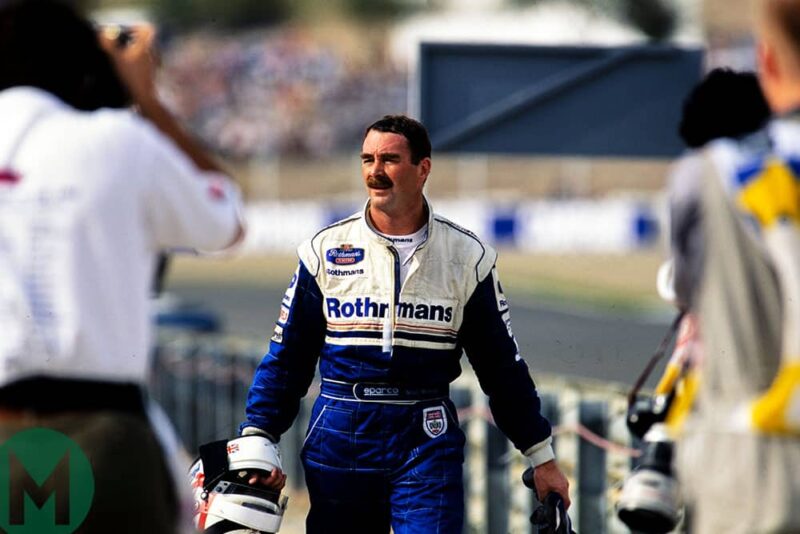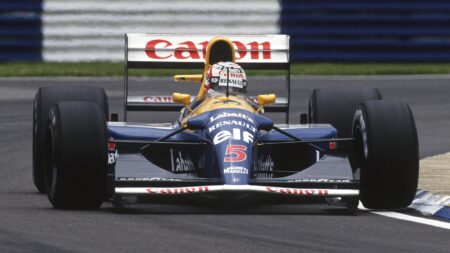But sometimes these heroics did not seem the product of a fully balanced mind. If the line between genius and madness is grassblade-thin, then so was that between Mansell’s in-car commitment and his off-beam need to prove the doubters wrong.
Depending on your perspective, the very best of Mansell could either be his unstinting devotion to his wife and family, or the Hungarian Grand Prix 1989. At 150mph he coolly boxed-in Senna behind Johansson‘s lapped Onyx and without lifting, jinked to the right, millimetres from catastrophe, passed the McLaren and won the race. No-one else alive could have done that to Ayrton Senna. The nadir could be any one of a series of unpleasantly heavy-handed dealings with both press and team insiders throughout his career.
The need to win is strong in all top racing drivers but in Mansell it is all-consuming and extends for some considerable distance beyond the cockpit. Peter Windsor, the first journalist truly to champion Mansell’s talent and later team manager at Williams during the Mansell days, comments, “He’s incredibly competitive in whatever he does, whether playing snooker, karate or fun soccer. He always wants the best; if he’s in a plane he wants the best seat, he wants to be first in the queue for the hire car and get the one with the lowest mileage. It’s constant and ingrained.”
Mix such a quality with his massive and entirely justified self-belief, a craving for recognition, then deny him that recognition for much of his career and the turmoils within him become rather easier to understand. For that is the essential story of Nigel Mansell: Searing performances surrounded by a vicious circle of conflict.
First the talent. There is a school of thought that Mansell made himself into the driver he is; that there was little innate ability. That’s pure nonsense, as even the briefest look at his early career confirms.
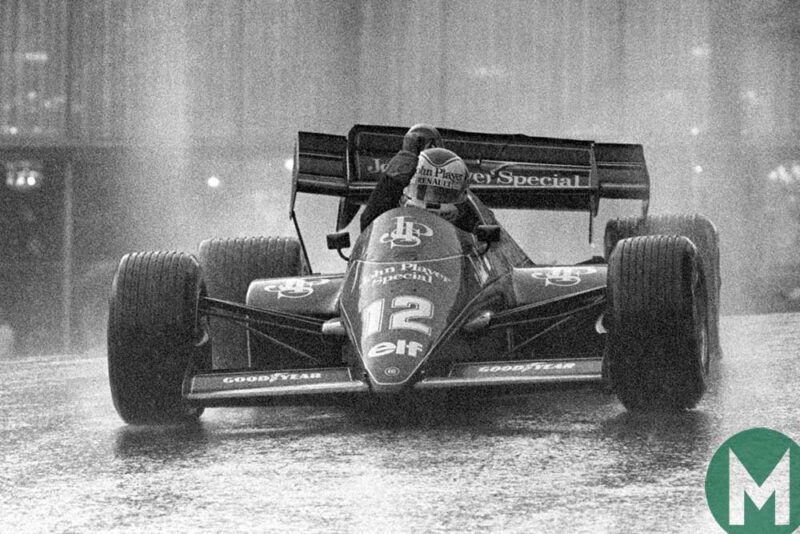
Mansell often pushed his car to the limit and beyond, Monaco ’84 being one such example
Motorsport Images
John Thorbum was team manager at McKechnie Racing in the mid-’70s: “I was sitting at the desk and the door opened and this lad walked in and said, ‘Hello, my name is Nigel Mansell, you don’t know me, but before you throw me out, I don’t want money, I want help.’ He said he had this Hawke Formula Ford car and it didn’t seem to work properly. I told him that he’d better bring it down sometime and we’d have a look at it, and he said, Oh, I’ve got it here,’ and he rushed out the door and suddenly appeared pulling a two-wheel trailer in his hands with a Formula Ford on it. We took it from him and the mechanic ran a line round it and after about an hour said, ‘Well, I can get three wheels pointing in the right direction but the other one’s an inch and a half out because the chassis is bent.’
“Nigel rang me on Monday morning and said, ‘Hello, I just want to thank you ever so much.’ He’d won from pole in what was just a heap of shit. From that point on really, I took an interest in him and helped as much as I could.”
In 1977 he won a national Formula Ford 1600 championship, winning 33 times from 42 races despite breaking his neck in a practice accident at Brands Hatch. It’s well documented that he and wife Rosanne then sold their house to fund a few races with the March F3 team in ’78. Rosanne is the solid foundation upon which the legend Mansell is built. It’s difficult to imagine anyone of his extreme disposition being able to sustain his momentum without such a guiding and calming influence. His form in F3 in ’78 was sensational. On his debut he set pole against the more experienced Nelson Piquet and Derek Warwick at Silverstone and was again quicker than either to grab the front row at Thruxton too. But after three more races the money ran out.
Windsor believes that even after all he’s achieved, Mansell’s talent is still underrated. “If Ferrari rang him tomorrow and said, `We want you to race with Schumacher next year and we’re prepared to pay you 10 per cent more than him and we’ll audit the books to show you that is the case, and we want you to spend the next four months in the gym and we want to make you world champion in 1999,’ there’s no doubt in my mind that Nigel would do that and he’d probably blow off Schumacher even now. I think he is that good. Of course, that’s never going to happen.”
Being dumped by March was just one of many rejections and it ensured that Mansell was never going to float effortlessly up the racing ladder on a sea of hype, finance and the best equipment in the way of Piquet or, later on, Senna “I think,” says Windsor, “that not being touted as a great driver early on in his career left him with a very large chip on his shoulder. It was never going to happen; he came from Birmingham, had the wrong accent and the Marlboro people didn’t like him.”
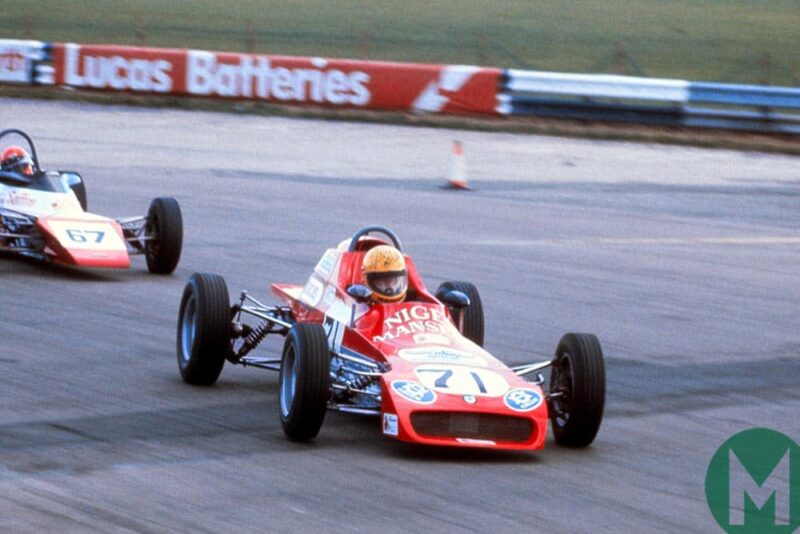
Early days
Motorsport Images
The break, of course, came with Lotus. Colin Chapman signed him as a test driver for 1980 after some cajoling from Windsor and his friend Peter Collins, then team manager at Lotus which led to a couple of late-season Grands Prix and subsequently a full season in ’81. Chapman evidently had enormous belief in him, something which touches Mansell deeply to this day. In his autobiography he says: “In Colin I knew a very warm and very loving human being who was at times kinder and even more understanding than my own father.”
Mansell’s father Eric had played a key role in his son’s karting career, which began when Nigel was 10 years old. They were close, but karting colleague Chris Hodgetts avows that: “He was much closer to his mother than to Eric, no doubt about that whatsoever.” There is, in fact, the hint of a feeling of betrayal from Mansell when he tells how his father refused to support his move into cars. Maybe that was the first real knockback after which all the subsequent ones paled by comparison. But each still hurt, for someone of Mansell’s fragile ego. “He’s totally insecure,” says Thorburn, who has remained a close friend ever since the Formula Ford clays. “Even now and after all he’s achieved. He’s come back to Touring Cars because he doesn’t want people to remember him going out on the McLaren deal. I love him clearly but he needs someone with him the whole time, supporting him. Sit him down by himself and within half an hour he’d he tearing his hair out. He can’t do anything for himself, he needs back-up.”
“Elio was so effortless. Nigel could not handle the personal style, elegance and chic of Elio” Peter Warr
With Chapman’s death at the end of ’82, that support dried up at Team Lotus. Peter Warr took over the running of the team and he was not a fan of Mansell. “Bearing in mind what he achieved later in his career,” says Warr, “it’s easy to forget how immature and incomplete a driver he was at Team Lotus. And my first impressions of him weren’t very favourable either. After he’d finished third at Zolder, he decided that that made him a superstar and he demanded a five-fold increase in his retainer.
“Then he was third on the grid at Monaco and did nothing to prevent the unfounded reputation being put around that he was a brilliant street racer. In fact, that qualifying position came out of a blatant cheat we were doing with skirts that wore away to the regulation 6cm clearance after you’d done three qualifying laps. Because he was prepared to accept that reputation, which was undeserved as everyone in the team knew, it sort of got us off on the wrong foot. If he couldn’t be honest with himself; how could he be honest with the team and how could we therefore progress?”
But there was still the social stigma of Mansell’s humble background too, especially as his teammate was Italian aristocrat Elio de Angelis. As Warr reveals: “Oh, Elio was so effortless. Nigel could not handle the personal style, elegance and chic of Elio.” But in fairness, Elio was usually faster too. In their four years together in the same cars, the qualifying score read: de Angelis 38, Mansell 15.
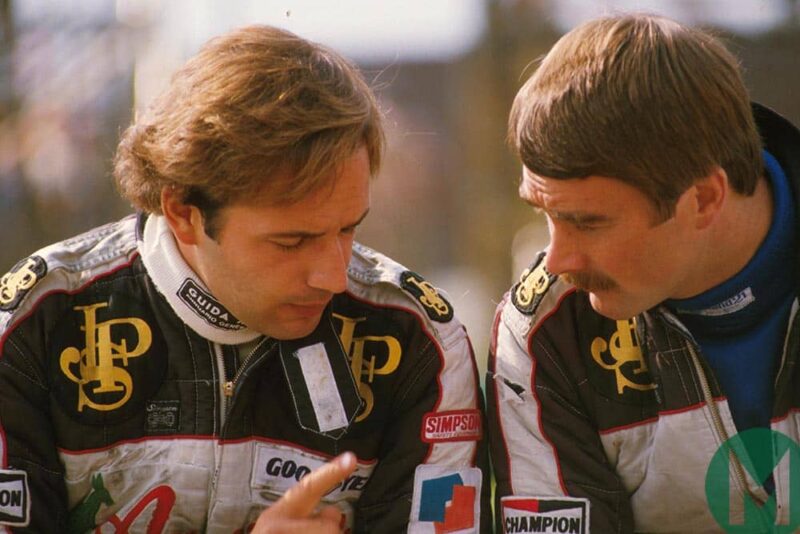
Mansell struggled to foster a good team atmosphere in contrast to team mates such as De Angelis
Motorsport Images
Though Mansell’s performances can hardly have been helped by the pro-Elio feel within the camp, it is something he himself helped to nurture, as attested to by Lotus mechanic Chris Dinnage: “We all liked how Nigel would drive the car absolutely flat-out but whenever there was a problem it was always the fault of somebody else, never his. Which grated a bit. Elio, on the other hand, took great care to involve us all and there was always a pleasant atmosphere around him.”
The vicious circle is easy to picture and it was given more momentum when Warr tried to replace Mansell fin ’84 with Senna, only for sponsor Imperial Tobacco to insist it keep a British driver on the payroll. Warr insisted in turn that the sponsor pay Mansell’s salary because he simply didn’t want him in the team.
“I think,” says Mansell’s aide and former Williams man Sheridan Thynne, “that Peter Warr didn’t share my view about how to get the best out of drivers.”
The race that perfectly encapsulated the failure of either warring party to properly harness Mansell’s burgeoning ability at Lotus was Monaco ’84. In appallingly wet conditions, on Goodyears that were no match for the wet weather performance of the Michelins on the other front runners, Mansell was pulling away from Prost at the front by two seconds a lap. It was mesmerising, but it was madness too. Eventually he put a tyre over a white line and creamed into the barrier. Mansell would probably not have pushed so hard had he had a more balanced view of what was required. Earlier he had walked in on Warr regaling the sponsors with just how wonderfully de Angelis had driven in the wet in a Paul Ricard test two days earlier. “I think,” says Windsor, “that Nigel was more concerned with showing Warr who was quick in the wet than with what was needed to win the Grand Prix.”
This was the time of Sir Robert Mark’s infamous Goodyear Grand Prix S television advertisement, a bastardisation of which was on the Lotus workshop wallchart the following week. It read “Nigel Mansell says: firmly believe Sir Robert Mark is a liar.”
It might have been funny, but it was also cruel and indicative of the flow of feelings. When he was eventually replaced by Senna at the season’s end, it was perhaps the very best thing that could have happened for both parties.
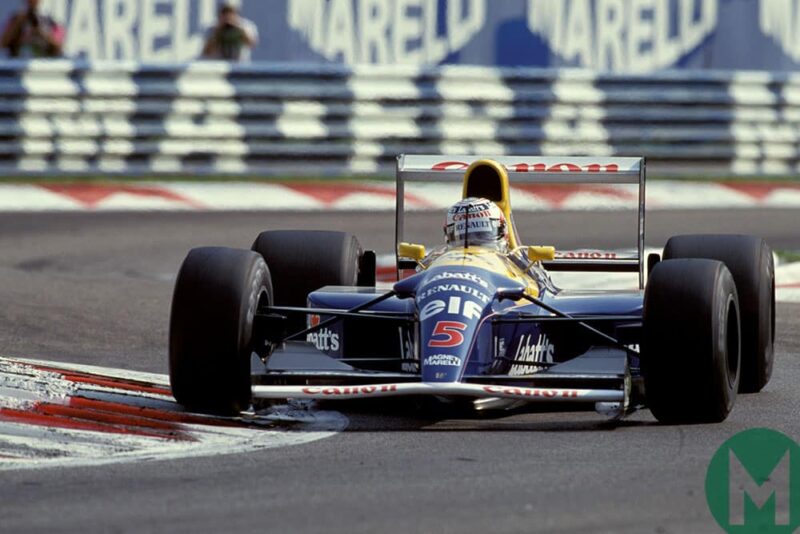
Mansell finally won the F1 championship he craved in the 1992 season, driving the superlative Williams FW14B
Motorsport Images
He was picked up by Williams and the rest is history. His first Grand Prix win came at Brands in ’85, he immediately followed it with another and was in contention for the world title in both ’86 and ’87, blowing off team-mate Piquet more often than not. Warr now acknowledges Mansell blossomed in his new environment: “I think he came to us with a major chip on his shoulder and we got the arse end of his difficult apprenticeship. He came good in a very positive way at Williams and once he did he then got the inner confidence that the other top drivers had anyway and became a complete driver. I think he was just a late developer.”
Mansell wasn’t exactly loved at Williams, either, but he was respected. Thynne comments: “Frank Williams liked drivers who were deeply committed. He felt that intermittently Nigel did give him an immensely hard time, but being competitive isn’t about being easy. After Nigel went off to Ferrari, Williams ran Patrese and Boutsen who were great guys but didn’t have Nigel’s ability to arrive, do an out lap, have the car checked, do a sighting lap and then be top of the pile alter the second flying lap. Frank loved that. I don’t think he came to fully appreciate it until after Nigel had gone.”
Meanwhile Mansell’s winning form with Williams sparked the public’s imagination in a way that thrilled him, especially as he felt he was still receiving less than full recognition from the press. It was at around this time that any problems became magnified and very public. It was also when his driving became infused with awe-inspiring daring and resolve in battle.
“I don’t think Frank came to fully appreciate Nigel until he had gone” Sheridan Thyne
It intensified further at Ferrari in ’89, in an environment where the team and the fans adored him. This was as good as it could get. But, Mansell being Mansell, it couldn’t last. In 1990 Prost joined the team and the honeymoon was over, exposing perhaps Mansell’s only remaining flaw as a driver.
“I think at that stage,” says Windsor, who by now was working for Ferrari, “Nigel had started to believe he could walk on water and forgot the principle that you need to have good people around you. He had that when Prost arrived. But Prost saw that and built his own team around him. Nigel did nothing to protect his patch in the team or prevent Scalabroni, who was the technical core, from leaving. Then Nigel did his usual thing and said he was being screwed by the team, a trait which has been his undoing on several occasions.” A trait which was responsible for ill-feeling toward him from various camps.
After the dramatic throwing of the gloves to the adoring crowds at Silverstone, he announced his retirement, only for Thynne to convince him to ‘unretire’ for ’91 and return to Williams. It would lead, of course, to his world crown of 1992 when he did a stunning job in a car vastly superior to the opposition. The latter was a point Mansell would refuse to concede, something not calculated to endear him to the design team which had produced that fabulous piece of equipment for him.
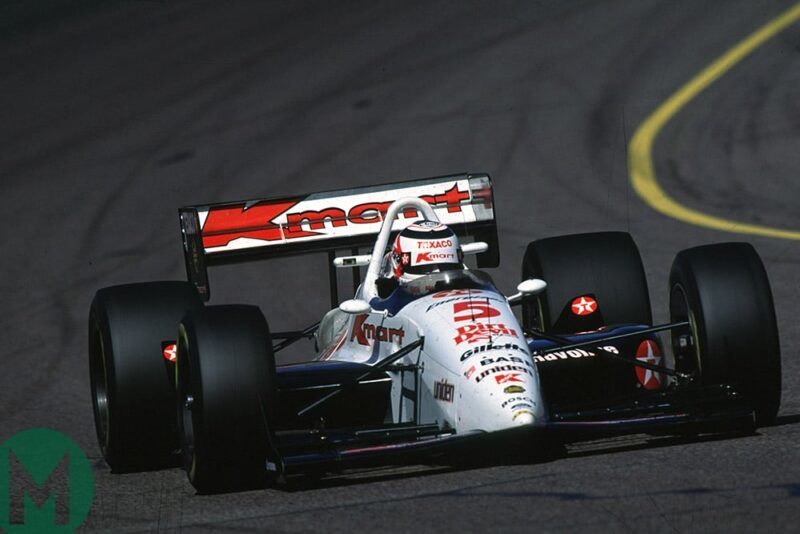
Mansell joined the CART world series for 1993 and remarkably won the championship at his first attempt
Motorsport Images
If anything, his Indycar title of ’93 was more remarkable, the final seal of greatness as a driver. That he won from pole in his brief comeback with Williams at the end of ’94 and showed stunning form in the Mondeo Touring Car at Donington a few weeks ago was, somehow, entirely predictable.
But Windsor views these late-career moves as evidence of Mansell’s still-poor judgement off-track. “Because of all he’s achieved he has an enormous ego, much bigger than any human should ever have, and this affects his decisions. I think to blow apart the Newman-Haas deal and come back to F1 was sheer lunacy. He could have stayed in America and had a great career out there for six or seven years.”
But he’d been asked to come back, apparently to get Williams out of its perceived problems and there were, as always, his ever-worshipping fans willing him to say yes. Wasn’t that the sort of plea he’d been waiting to hear all his career, the sort that he had expected to hear over 20 years before, when he first started displaying his startling talent?
“Bearing in mind how good we now know that he is and was,” says Windsor, “it is absurd that the motor racing fraternity managed somehow not to take any notice of him until he was over 50 per cent of the way through his career. I think that fraternity should look at itself and ask just how the hell they allowed that to happen. In the end, it was just luck he wasn’t left by the wayside.”
